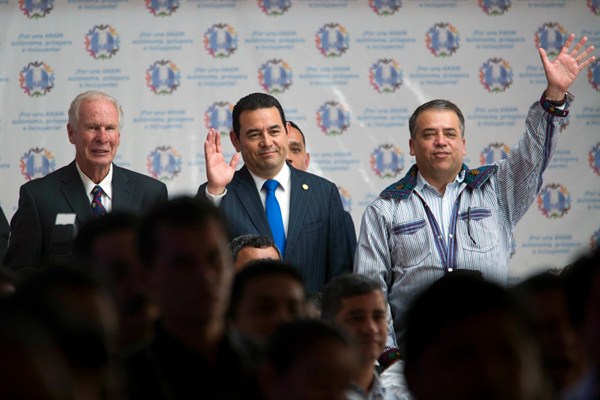In recent years, while different regions of the world fought battles against extremism, disease or the rise of authoritarianism, Latin America waged its own pivotal war against what has been arguably the region’s greatest scourge: corruption. Now, after a string of victories that would have been unimaginable only a few years ago, the conflict faces a make-or-break challenge in the very place where it was born, Guatemala.
Guatemala’s president, Jimmy Morales, has put the lie to his campaign promise to stand against corruption and in support of the rule of law, and is now threatening the institution that made it possible to reverse the tide of malfeasance.
If we wanted to trace the beginning of the anti-corruption wave that has toppled presidents, unseated legislators and transformed Latin America from a place where corruption was a way of life into one where graft is a risky venture, Guatemala in 2006 would be the place to start. The country was rife with impunity, with a broken judiciary system, corruption at the highest levels, security services working for the highest bidders, and a pervasive sense that justice was nonexistent. At the time, Amnesty International described the country as a “mafia state.”

